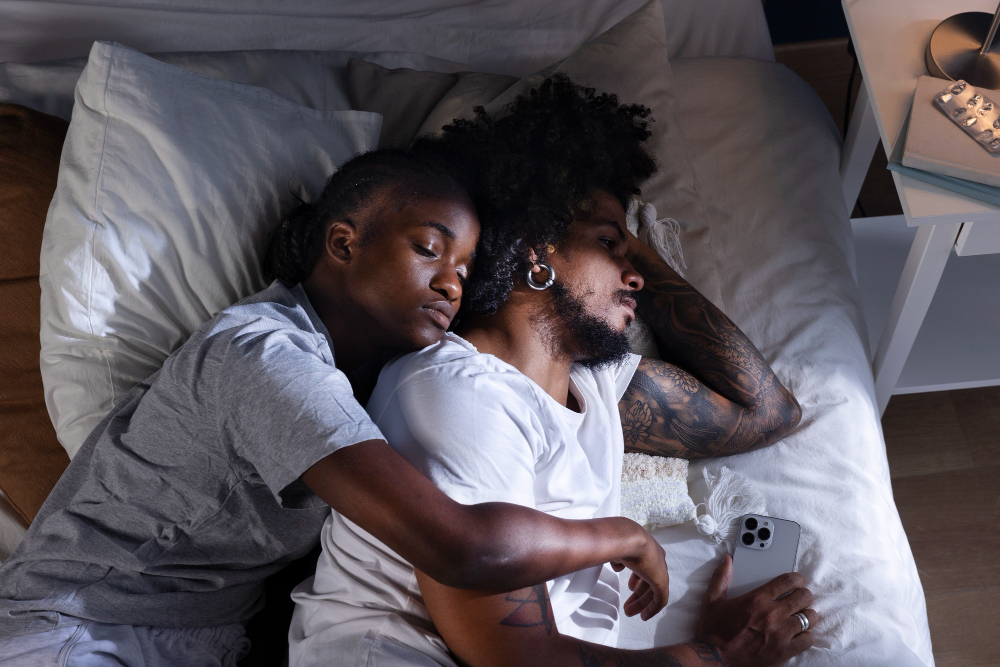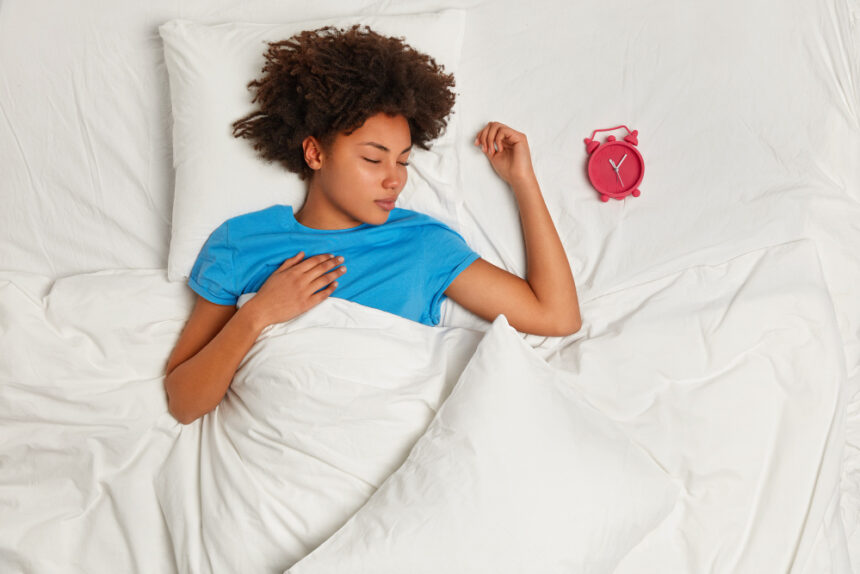Getting a good night’s sleep isn’t just about feeling refreshed the next day—it plays a critical role in maintaining our physical, mental, and emotional well-being. In our fast-paced world, sleep is often the first aspect of health to be sacrificed. Whether it’s due to late-night work sessions, endless scrolling through social media, or simply poor bedtime habits, the consequences of inadequate sleep are far-reaching. This is where the concept of sleep hygiene becomes essential.
Sleep hygiene refers to a collection of habits and practices that are conducive to sleeping well on a regular basis. It’s a foundational element of holistic health, affecting everything from cognitive function and mood regulation to immune system performance and chronic disease prevention. By adopting good sleep hygiene, individuals can improve not only their quality of sleep but also their overall quality of life.
In this comprehensive guide, we will explore the science behind sleep hygiene, its importance, practical strategies for implementation, and how neglecting sleep can lead to severe health issues. Whether you’re someone struggling with insomnia or just curious about optimizing your sleep habits, this article will provide you with the insights and tools you need to take control of your rest and, by extension, your health.
Understanding Sleep Hygiene: What Is It and Why It Matters
What Is Sleep Hygiene?
Sleep hygiene is a term that encompasses all the behavioral and environmental factors that influence sleep. These include your bedtime routine, the sleep environment, daily habits like diet and exercise, and even the way you manage stress. Essentially, it’s everything you do throughout the day and night that either supports or sabotages your sleep.
A good analogy is dental hygiene: just like brushing and flossing help keep your teeth healthy, practicing sleep hygiene helps keep your sleep cycles functioning properly. Yet, unlike dental hygiene, sleep hygiene is not widely taught or emphasized, leaving many people unaware of its significance.
Why Sleep Hygiene Is Essential for Health
Poor sleep doesn’t just result in grogginess or crankiness the next day—it has deeper, long-lasting impacts on health. Chronic sleep deprivation has been linked to a range of serious health issues including obesity, diabetes, cardiovascular disease, depression, and even a shortened lifespan.
In contrast, good sleep hygiene promotes restorative sleep, allowing your brain and body to repair, grow, and regulate essential processes. For example, during sleep, the brain consolidates memories, hormones are regulated, muscles repair, and the immune system strengthens. Sleep also plays a role in emotional stability, creativity, and decision-making.
The Science of Sleep: How Our Bodies Are Wired for Rest
Circadian Rhythms and the Sleep-Wake Cycle
Our bodies follow a 24-hour internal clock known as the circadian rhythm. This cycle regulates when we feel alert and when we feel sleepy, largely in response to environmental cues such as light and temperature. The hormone melatonin, which signals to your body that it’s time to wind down, is produced in response to darkness and suppressed by light.
Disruptions to this rhythm—such as shift work, jet lag, or excessive screen time before bed—can throw off your internal clock and interfere with sleep. Practicing good sleep hygiene helps realign your circadian rhythm with your natural environment, thereby promoting deeper and more consistent rest.
Sleep Stages and Their Functions
Sleep is composed of multiple stages: non-REM (N1, N2, N3) and REM (rapid eye movement) sleep. Each stage serves a different purpose:
- N1 (light sleep): The transition from wakefulness to sleep.
- N2: Your body temperature drops, and heart rate slows.
- N3 (deep sleep): Physical restoration occurs here.
- REM sleep: Brain activity increases, and dreaming happens. This stage is vital for memory and emotional processing.
Good sleep hygiene supports cycling through all these stages efficiently, ensuring your body and brain receive the benefits of every phase.
Factors That Disrupt Sleep Hygiene
Technology and Screen Time
Modern technology is one of the biggest culprits in poor sleep hygiene. Devices such as smartphones, tablets, and computers emit blue light that disrupts melatonin production, making it harder to fall and stay asleep. Moreover, the mental stimulation from social media or emails can keep the brain in a state of alertness long after you put the device down.
Inconsistent Sleep Schedules
Irregular sleep and wake times can confuse your internal clock, making it difficult to maintain a consistent sleep cycle. Staying up late on weekends and sleeping in, a phenomenon known as “social jet lag,” can leave you feeling sluggish throughout the week.
Caffeine, Alcohol, and Heavy Meals
Substances like caffeine and alcohol, especially when consumed late in the day, can interfere with your ability to fall into a deep, restful sleep. Similarly, eating large meals right before bed can lead to discomfort and indigestion, disrupting your rest.
Stress and Mental Health
Anxiety and stress activate the sympathetic nervous system—often referred to as the “fight or flight” response. This makes it harder to relax and fall asleep. Chronic stress can lead to insomnia, while poor sleep, in turn, exacerbates stress, creating a vicious cycle.
How to Improve Your Sleep Hygiene: Practical Tips
Set a Consistent Sleep Schedule
Go to bed and wake up at the same time every day, even on weekends. This helps regulate your internal clock and can make falling asleep and waking up easier. Over time, your body will begin to anticipate sleep and wake times naturally.
Create a Relaxing Bedtime Routine
Establish calming rituals before bed such as reading, gentle stretching, or meditation. Avoid stimulating activities and bright lights during this time. A consistent wind-down routine signals to your brain that it’s time to prepare for sleep.
Optimize Your Sleep Environment
Ensure your bedroom is cool, quiet, and dark. Use blackout curtains, earplugs, or a white noise machine if necessary. A comfortable mattress and pillows are also critical. Your sleep space should be reserved for sleep and intimacy only—no working, eating, or watching TV in bed.
Limit Exposure to Screens
Avoid screens at least an hour before bed. Consider using blue light filters if screen time is unavoidable. Opt for offline activities like journaling or listening to calming music instead.
Watch What You Eat and Drink
Avoid caffeine, alcohol, and heavy meals late in the evening. Instead, opt for a light snack if you’re slightly hungry—something like a banana or a handful of almonds, which contain sleep-supporting nutrients.
Sleep Hygiene for Different Age Groups

Sleep Hygiene in Children
Children need more sleep than adults and benefit immensely from structured bedtime routines. Consistent bedtimes, screen-free evenings, and quiet activities like storytime can help children develop healthy sleep habits that last a lifetime.
Teenagers and Sleep Challenges
Adolescents naturally experience a shift in their circadian rhythms, often feeling more alert later at night. Coupled with academic pressure and screen time, this can lead to chronic sleep deprivation. Encouraging good sleep hygiene during these years is critical for their development and academic performance.
Adults and Busy Schedules
Adults often juggle multiple responsibilities, making sleep feel like a low priority. However, neglecting sleep can result in burnout and decreased productivity. Incorporating simple sleep hygiene practices—like winding down before bed and sticking to a sleep schedule—can make a significant difference.
Sleep and the Elderly
Older adults often experience lighter, shorter sleep. Conditions such as arthritis or frequent nighttime urination can also interfere with sleep. Establishing sleep hygiene practices like reducing fluid intake before bed and engaging in light exercise during the day can help.
Sleep Disorders and When to Seek Help
Recognizing Sleep Disorders
If you practice good sleep hygiene but still struggle with sleep, you may be dealing with a sleep disorder such as insomnia, sleep apnea, restless legs syndrome, or narcolepsy. Common signs include:
- Difficulty falling or staying asleep
- Loud snoring or gasping during sleep
- Excessive daytime sleepiness
- Mood changes or irritability
Diagnosing and Treating Sleep Issues
Consulting a healthcare provider is important for proper diagnosis and treatment. Sleep studies can identify underlying issues, and treatments may include CPAP machines, cognitive behavioral therapy for insomnia (CBT-I), or medication.
Integrating Sleep Hygiene With Medical Treatments
Even when professional treatment is necessary, sleep hygiene remains a crucial part of recovery. Good habits can complement medical interventions, improving their effectiveness and speeding up recovery.
The Relationship Between Sleep Hygiene and Mental Health
Sleep and Anxiety
Sleep deprivation can exacerbate symptoms of anxiety and, in some cases, be a contributing factor to its development. A well-rested mind is more capable of managing stress and regulating emotional responses.
Sleep and Depression
Poor sleep and depression often go hand in hand. Depression can lead to sleep disturbances, and sleep deprivation can worsen depressive symptoms. Practicing good sleep hygiene can be a low-risk, effective tool in managing mood disorders.
Sleep and Cognitive Function
Sleep is essential for memory consolidation, focus, and problem-solving. Poor sleep hygiene leads to impaired cognitive function, making it harder to perform everyday tasks efficiently and safely.
Sleep Hygiene in the Workplace
Why Employers Should Care
Workplace productivity is directly linked to employee well-being. Companies that promote good sleep hygiene through wellness programs, flexible work hours, and rest breaks can see significant improvements in performance and morale.
Remote Work and Sleep Hygiene
Remote work blurs the lines between home and office, often leading to longer screen exposure and irregular schedules. Employees should be encouraged to set boundaries, take screen breaks, and maintain consistent sleep routines to preserve mental health.
Myths About Sleep Hygiene
Myth: You Can “Catch Up” on Sleep Over the Weekend
Sleep debt is real, but it’s not easily repaid. Sleeping in on weekends can disrupt your circadian rhythm and make it harder to fall asleep on Sunday night, leading to a cycle of poor sleep.
Myth: Everyone Needs Eight Hours
While eight hours is a general guideline, the ideal amount of sleep varies by individual. Some may feel rested with seven hours, while others need nine. The key is feeling refreshed and functional throughout the day.
Myth: Alcohol Helps You Sleep
Alcohol may help you fall asleep initially, but it disrupts REM sleep and leads to fragmented, low-quality rest. It’s best to avoid alcohol close to bedtime for optimal sleep hygiene.
Make Sleep Hygiene a Daily Priority
Prioritizing sleep hygiene is one of the simplest yet most powerful steps you can take to enhance your health and well-being. It doesn’t require fancy gadgets or expensive supplements—just a commitment to consistent, healthy habits.
From optimizing your sleep environment and establishing a calming routine to understanding the effects of diet, stress, and technology, sleep hygiene is an all-encompassing practice that yields lifelong benefits.
In a society that often glorifies hustle and productivity at the expense of rest, choosing to value sleep is a radical act of self-care. Make sleep a non-negotiable part of your health strategy, and you’ll soon discover its ripple effect across every area of your life.

